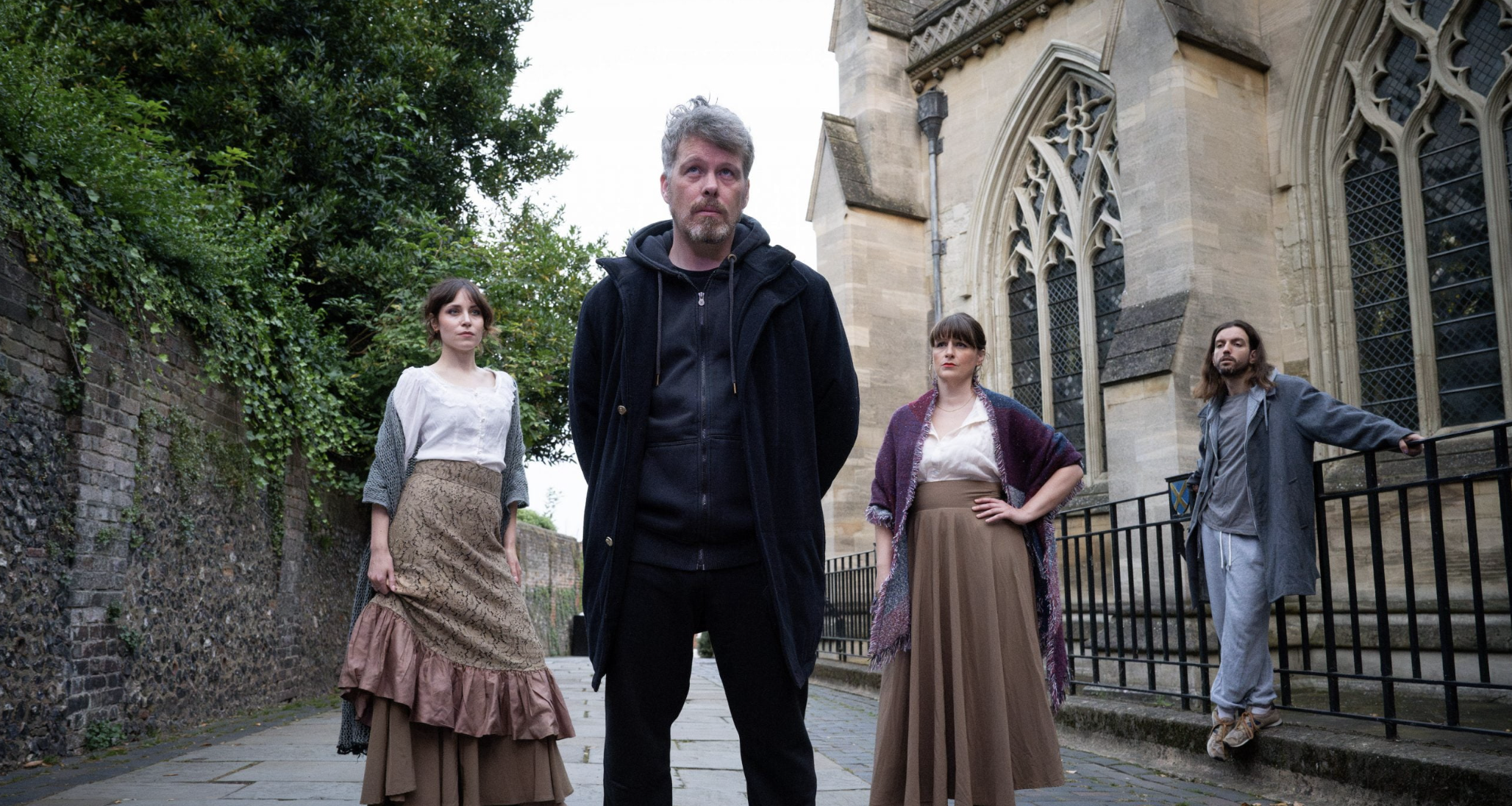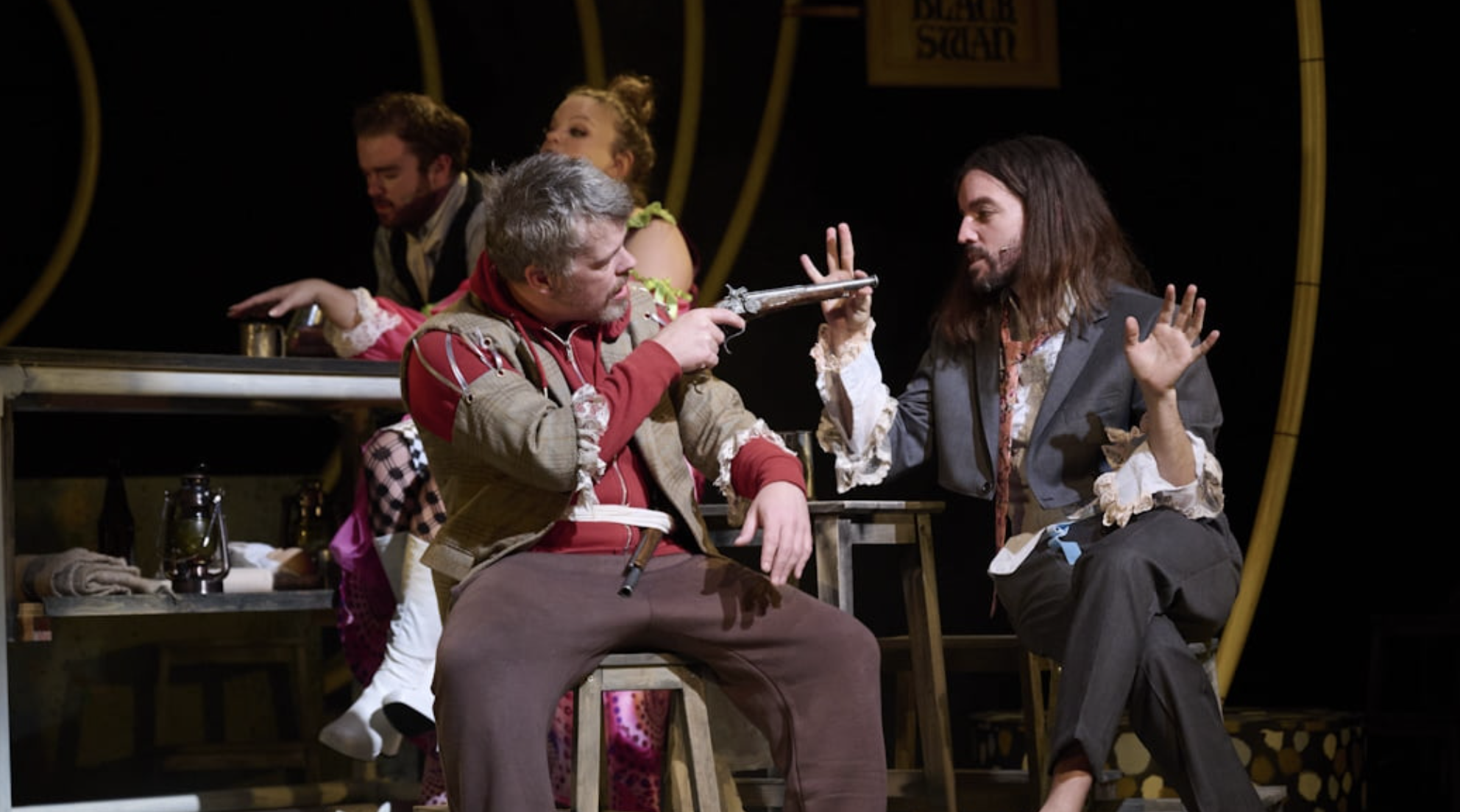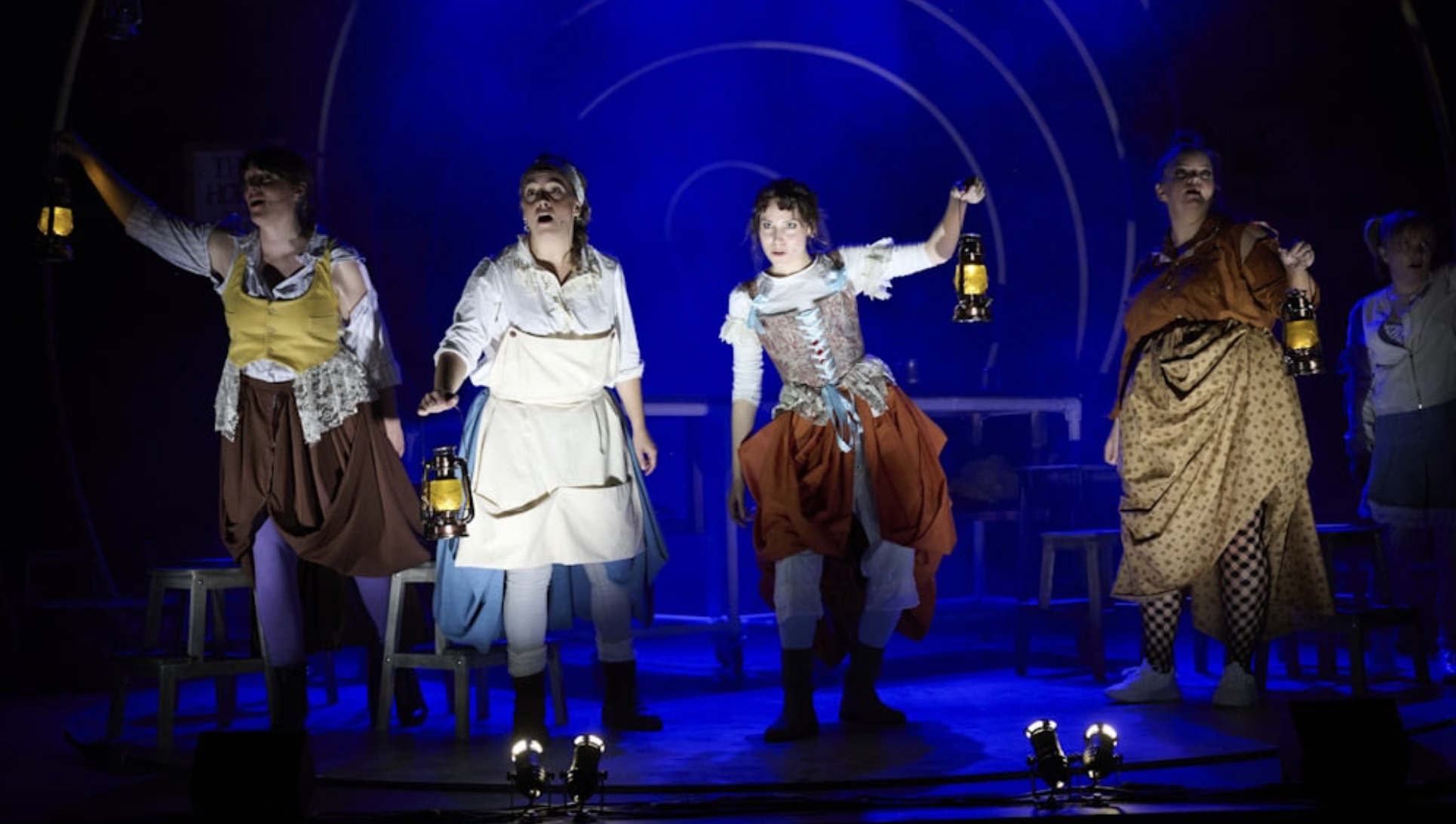
The Highwayman is a new British Musical channeling 17th century debauchery and the pitfalls of love. We caught up with leads Josselyn Ryder and Kevin Wathen to get the scoop on the production...
Hi Kevin and Josselyn. Can you share some early performing experiences that piqued your interest in a life on-stage?
Josselyn: Hi George, yes absolutely. I was always drawn to theatre and music as a child. I was very lucky that my parents would take me to children’s days with the local orchestra and I was able to participate in plays at school, but it wasn’t until I was in my early teens that I felt a connection to theatre (and particularly musical theatre) that transcended an ordinary interest. As an otherwise reserved and anxious adolescent, it became clear to me that the belonging, teamwork, and the extraordinary human experience of theatre were things that made me feel alive and understood, and most importantly: connected to other people. The year I turned 12 I did a summer youth theatre program that concluded with a performance of Les Miserables. It was love at the first note and remains one of my favourite life experiences (and shows!).
Kevin: I had a really inspiring teacher in high school, called George Adamson, who was encouraging to everyone regarding the arts, so initially it was through the school choir and productions there. I joined local Amateur societies, both youth and adult, and was involved in many shows from classics like ‘South Pacific’ and ‘Me and my girl’, to ‘Return to the Forbidden Planet’. I remember one particular moment, in ‘Crazy for You’, for the Alnwick Youth Musical Theatre Society, at the Alnwick Playhouse. I was playing Bobby Child and another local actor, Ritchie Newbiggin, was playing Bella Zangler. It was during the scene where Bobby is imitating Bella, and I believe they are both slightly inebriated. There was definitely a moment of major corpsing, but the way the audience were with us, it just made the moment electrifying. It was so joyful…. unifying. Cathartic. That, total ‘Liveness’, the bargain between the actor and the audience. Since then, it has always been that. That you can represent all walks of life, all aspects of humanity, so that they can see themselves in your characters, and the stories that we have the privilege to tell.
How did you come to be involved in The Highwayman? What initially attracted you?
J: Like most jobbing actors, I was initially called in to audition for The Highwayman via my agent’s submission, although I was called in for Rose at that time. From the audition sides and description of the show, I felt it had something unique; Kitty’s use of rhythmic spoken word was intriguing, and the characters had incredible depth. I eventually read for Bess and felt a distinct spark. I knew she would be a challenging character and I deeply wanted to take it on and dive into her witchy, damaged, sublime world. I’m glad our production team agreed!
K: Like most professional actors, I first heard about it through my agent, and an audition from the team at OVO. I loved the script and songs instantly. I always listen to my gut when it comes to work, it has to do something to me, and this did. There is so much depth in the book alone, so many layers to each character, dealing with both timeless and modern issues, abuse, choices, love, loyalty, what it means to be human, to survive, to start again, the bravery and tenacity of the spirit to endure, to hope. And that’s without the sublime songs and masterfully crafted score and arrangements by Kitty Morgan and Adam Morris, and the collective vocal beauty and power of the cast… What’s not to like? It’s so unique and refreshing as a piece of new musical theatre, and beneath the beautiful darkness of it all, it has a massive heart.

What is your favourite scene or moment in The Highwayman; please elaborate on why?
J: My favorite moments keep changing as we grow and evolve with the show, but one constant happens to be in Act II as the ghost of Thomas French is being released by Duval and Peggy. The music that Kitty Morgan and Adam Morris have written is haunting. It makes me feel so many things. It is also the precursor to our big final number and holds in it all of the anticipation of the ending. It’s a beautiful moment.
K: Oh man, that is a tough one. There are so many wonderful moments in the show, and I’m slightly biased, as I am lucky enough to be humbled by every show, working alongside such a gifted cast. Everyone brings something really special to the piece and it’s a delight to share the stage with them. As far as a favourite moment; it has to be when the company is singing as a whole. It's such a wonderful sound. There are many fantastic moments, you’ll have to come and see for yourselves.

How did you (and the set designers) get to grips with the feel of 1600s England?
J: If I’m being perfectly honest, I haven’t put much emphasis on any perfect recreation of 1600’s life; I’ve tried to follow the language that Kitty Morgan has written and assimilate into the world of our wonderful designer, Adrian Rees, which combines elements of the period along with contemporary ones. It’s a show in both places at once. Although certainly I’ll admit Bess could drink me under the table and knows her way around the black market (and magic) better than I do. I have read sections of “The Witch” by Ronald Hutton for some background on the nature of history of witchcraft during the period.
K: Well I can only answer for myself, as I’m not sure of Adrian’s approach regarding set and costume design. Although I don’t think it is strictly designed to be authentically ‘period’. There are elements within the costumes and design that are also quite contemporary. I quite like the ambiguity of it as this story, although set in 1666, could quite easily be set in 2024, which, I think, helps to immerse the audience further, due to it feeling closer to us as a society than we think.
Because of this temporal ambiguity, you can draw on both periods with regards to influences and stylistic decisions. I obviously looked at the source material on which the show is based; the famous poem by Alfred Noyes. Then research into the restoration, Charles II, the plague and the great fire of London, crime and punishment in that era, prisons, famous highwaymen. And also, the Claude Duval of our piece is a product of a broken system, from a world of abuse and neglect, who turned to crime through necessity, though still as charming and articulate and intelligent. I watched a lot of contemporary documentaries about prisons, crime and punishment, and drew a lot from the people there.
What’s caught your eye in the UK culture scene recently? (Can be anything!)
J: It’s sadly closed now, but seeing People, Places, and Things with Denise Gough at the Trafalgar Theatre this summer was one of my all-time favourite performances of anyone I’ve ever seen. She is so emotionally flexible and detailed, yet somehow so unpredictable. I’ll always remember it. I’m also looking forward to the next Wildlife Photographer of the Year exhibit at the Natural History Museum. I could spend days in there.
K: I love music, and am always amazed at the wealth of musical talent that the UK produces, across all genres. RAYE is a bit of a sensation, what an amazing instrument. My taste is quite eclectic so I listen to most genres. It's great that the UK is maintaining that reputation of nurturing world-class musical talent.
Learn more about the show here.
Photography by OVO Theatre & Norwich Theatre.